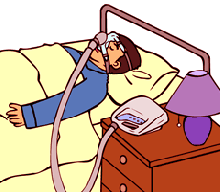Non-surgical sleep apnea cures: oral appliances
How do they work? Well, oral appliances are used to move the jaw forward or hold the mouth open preventing closure of the airway. You wear them during your sleep. They are often made of soft plastic and fit over your teeth. You will need to go to the dentist to shape them properly. Some oral appliances are made in the way that you can mold them to fit your mouth at home.
Oral appliances are considered to be an excellent mild and moderate sleep apnea cure. They are also used to treat patients suffering from bruxism and some other sleeping disorders. Oral appliances are small and portable and, as I have already said, they don’t require surgery. Though you should be careful while using them as oral appliances can cause temporomandibular joint disfunction. It happens when the jaw is pulled too far forward resulting in pain in joints while eating. Therefore, it is highly recommended to have a dentist or oral surgeon to fit and adjust your oral appliance.
